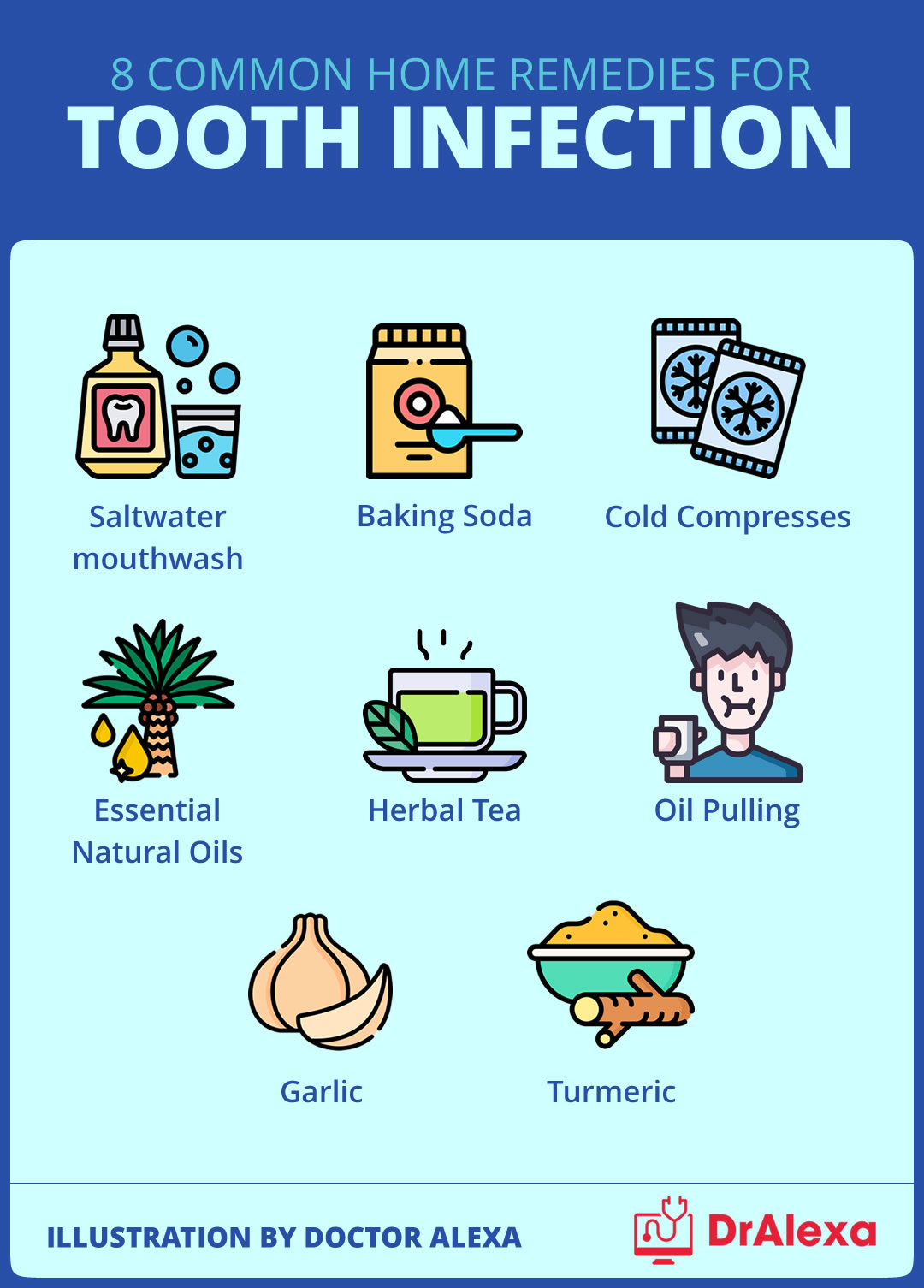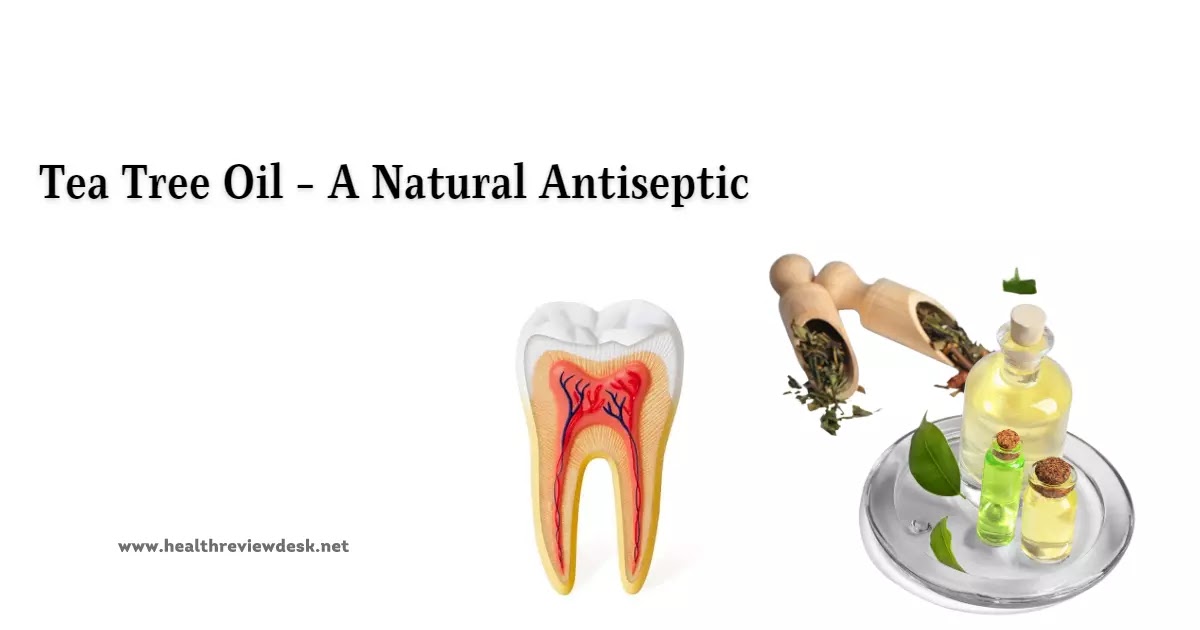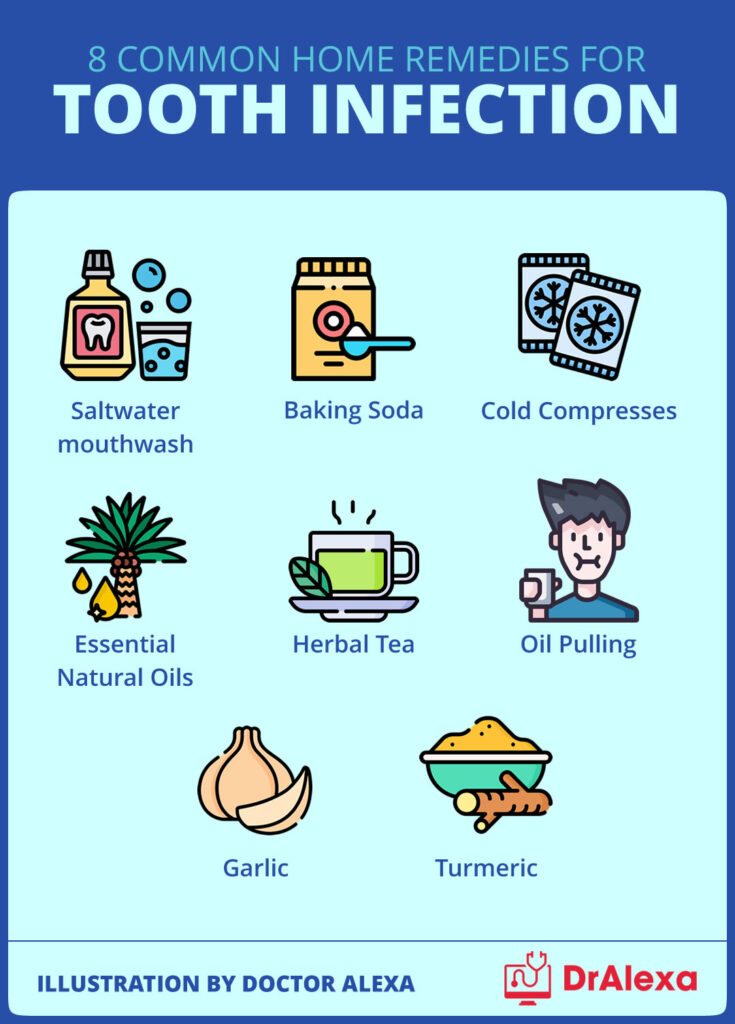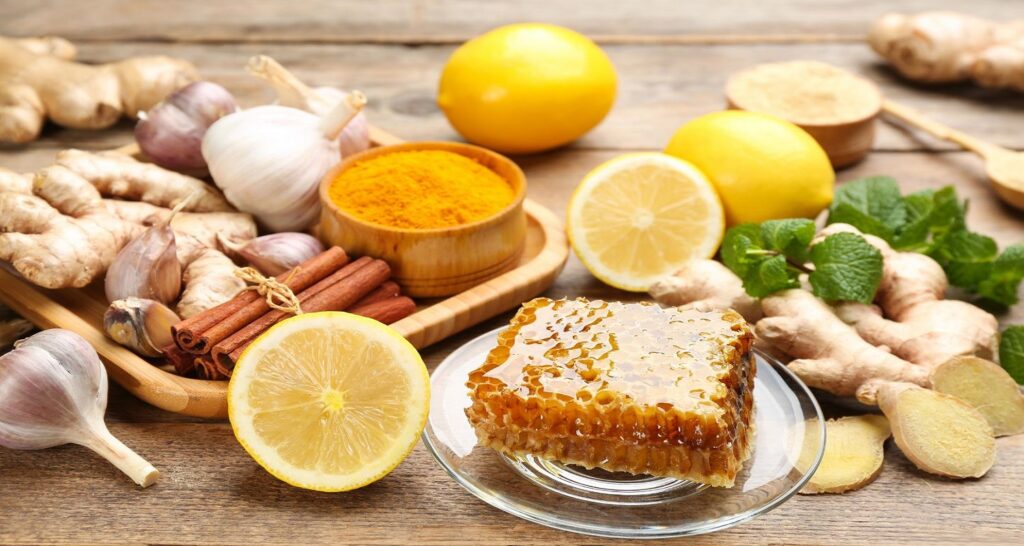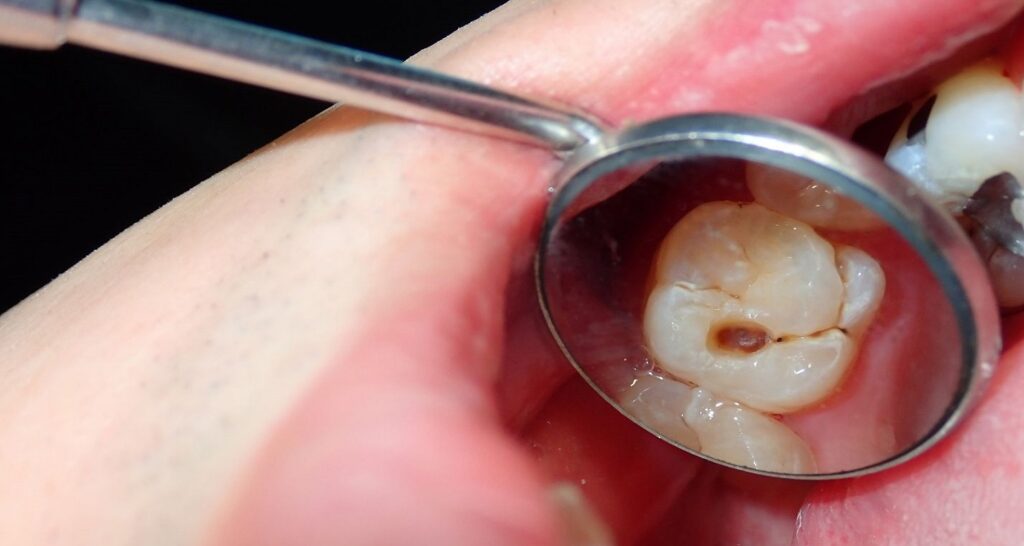Have you ever experienced the throbbing pain of a tooth infection? It can be excruciating, making it difficult to eat, sleep, or even concentrate on anything else. You may have immediately turned to your dentist for help, but did you know that there are natural remedies you can use to relieve the symptoms of a tooth infection? In this article, you will learn about the power of natural antibiotics and how they can help fight off tooth infections.
Now, before we dive into the world of natural antibiotics, let’s briefly discuss what a tooth infection is and how it can cause immense discomfort. A tooth infection, also known as an abscessed tooth, occurs when the innermost part of the tooth, called the pulp, becomes infected with bacteria. This can happen due to dental decay, gum disease, or trauma to the tooth. The bacteria multiply rapidly, causing inflammation and the accumulation of pus, leading to severe pain and swelling. If left untreated, a tooth infection can spread to other areas of the body, resulting in serious health complications. But fear not, because nature has provided us with some amazing natural antibiotics that can help combat this infection. In the next section, you will discover various natural remedies that can alleviate the pain and reduce the inflammation caused by a tooth infection. So, keep reading to find out more!
Understanding Tooth Infection
A tooth infection, also known as a dental abscess, is a serious dental condition that occurs when bacteria invade the pulp of the tooth. This can result in severe pain, swelling, and potential complications if left untreated. Understanding the causes, symptoms, and available treatment options for tooth infections is essential for maintaining good oral health.
What is a tooth infection?
A tooth infection occurs when bacteria enter the tooth through a crack, cavity, or other dental condition, causing an infection in the pulp of the tooth. The pulp is a soft, sensitive tissue that contains blood vessels and nerves. When bacteria invade the pulp, it can lead to an abscess, which is a pocket of pus that forms at the root of the tooth.
Causes of tooth infection
There are several factors that can contribute to the development of a tooth infection. Poor oral hygiene, untreated dental cavities, cracked or broken teeth, and dental trauma can all increase the risk of infection. Additionally, individuals with a weakened immune system, such as those with diabetes or undergoing chemotherapy, are more susceptible to tooth infections.
Common symptoms of tooth infection
The symptoms of a tooth infection can vary depending on the severity of the infection. Some common signs include:
- Severe toothache
- Swelling of the face or gums
- Sensitivity to hot or cold temperatures
- Fever
- Foul taste in the mouth
- Difficulty swallowing or breathing
If you experience any of these symptoms, it is important to seek dental care as soon as possible to prevent the infection from spreading and causing further complications.
Traditional Antibiotics for Tooth Infection
Traditional antibiotics have long been the go-to treatment option for tooth infections. They can effectively kill bacteria and reduce the symptoms associated with the infection. Commonly prescribed antibiotics for tooth infections include penicillin, amoxicillin, and clindamycin.
Types of antibiotics commonly prescribed
Penicillin and amoxicillin are the most frequently prescribed antibiotics for tooth infections. They belong to a class of antibiotics known as beta-lactams, which inhibit the growth of bacteria by interfering with their cell wall formation. Clindamycin, another commonly prescribed antibiotic, is known as a lincosamide and works by inhibiting bacterial protein synthesis.
Effectiveness of traditional antibiotics
In most cases, traditional antibiotics are effective in treating tooth infections and relieving symptoms. They help eliminate the bacteria causing the infection and prevent it from spreading further. However, the effectiveness of antibiotics can vary depending on the type and severity of the infection, as well as individual factors such as antibiotic resistance.
Side effects and risks associated with traditional antibiotics
While traditional antibiotics can be effective, they are not without risks. Common side effects include nausea, diarrhea, and allergic reactions. In rare cases, more severe side effects such as liver damage or tendon rupture can occur. Additionally, the overuse and misuse of antibiotics can lead to antibiotic resistance, making it more difficult to treat future infections.
Exploring Natural Antibiotics
In recent years, there has been growing interest in natural antibiotics as a potential alternative or complementary treatment for tooth infections. Natural antibiotics are derived from plants, herbs, and other natural sources, and have been used for centuries in traditional medicine.
What are natural antibiotics?
Natural antibiotics are substances that possess antimicrobial properties and can help fight against bacterial, viral, and fungal infections. They can be found in various forms, including herbs, spices, essential oils, and food sources. Natural antibiotics work by targeting and killing harmful bacteria while leaving the beneficial bacteria that contribute to overall health intact.
Benefits of natural antibiotics
Using natural antibiotics for tooth infections offers several potential benefits. Firstly, natural antibiotics are generally considered safer and have fewer side effects compared to traditional antibiotics. They also have the advantage of being readily available, affordable, and easily accessible. Furthermore, natural antibiotics may have additional health benefits beyond their antibacterial properties, such as anti-inflammatory effects.
How natural antibiotics target tooth infection
Natural antibiotics can target tooth infections by directly killing bacteria or inhibiting their growth. Many natural antibiotics possess antibacterial properties due to the presence of bioactive compounds such as allicin in garlic, curcumin in turmeric, eugenol in clove oil, and terpinen-4-ol in tea tree oil. These compounds can penetrate the infected tooth tissue, inhibit bacterial growth, and reduce inflammation, providing relief from the infection.
Powerful Natural Antibiotics
There are several powerful natural antibiotics that have been widely studied for their potential effectiveness in treating tooth infections.
Garlic
Garlic is a popular natural antibiotic due to its potent antimicrobial properties. It contains a compound called allicin, which has been shown to have strong antibacterial, antifungal, and antiviral properties. Allicin can effectively kill bacteria that cause tooth infections, making garlic an excellent natural remedy for dental health.
Turmeric
Turmeric, a vibrant yellow spice commonly used in cooking, has been used for centuries in traditional medicine for its anti-inflammatory and antioxidant properties. The active compound in turmeric, curcumin, has been found to possess antibacterial properties as well. Curcumin can help reduce inflammation and pain associated with tooth infections, aiding in the healing process.
Clove oil
Clove oil is a natural analgesic and antiseptic that has been used for centuries to alleviate toothaches and oral infections. It contains eugenol, a compound that exhibits potent antimicrobial properties. Eugenol helps numb pain and kill bacteria, providing relief from tooth infections.
Tea tree oil
Tea tree oil is derived from the leaves of the tea tree plant and is known for its antimicrobial and anti-inflammatory properties. The active ingredient in tea tree oil, terpinen-4-ol, has been shown to possess antimicrobial activity against a wide range of bacteria, including those responsible for tooth infections. Tea tree oil can help reduce inflammation and prevent the growth of bacteria, promoting healing in the infected tooth.
Garlic: A Natural Antibiotic for Tooth Infection
Garlic is one of the most potent natural antibiotics for treating tooth infections, thanks to its active compound allicin. Allicin is formed when garlic is crushed or chopped, and it possesses strong antimicrobial properties that can combat bacterial infections.
Key components that make garlic effective
Garlic contains several key components that contribute to its effectiveness as a natural antibiotic. Allicin, the primary active compound, is responsible for its antimicrobial activity. It can kill a wide range of bacteria, including those that cause tooth infections. Additionally, garlic is rich in antioxidants and anti-inflammatory compounds that can support the healing process.
Methods to use garlic for tooth infection
There are several ways to use garlic for tooth infections. One simple method is to chew on a fresh garlic clove, allowing the juices to come into contact with the infected tooth and surrounding gums. Alternatively, you can crush a garlic clove to release the allicin and mix it with a carrier oil, such as olive oil, and apply the mixture directly to the affected area. Another option is to take garlic supplements, which are available in various forms such as capsules or liquid extracts.
Precautions and potential side effects
While garlic is generally safe for consumption, it can cause some side effects in certain individuals. These can include heartburn, bad breath, and gastrointestinal discomfort. It is also important to note that individuals with bleeding disorders or those taking blood-thinning medications should exercise caution when using garlic as it may increase the risk of bleeding.
Turmeric: An Effective Anti-inflammatory Agent
Turmeric, known for its vibrant yellow color and distinct flavor, has gained popularity in recent years for its numerous health benefits. It contains an active compound called curcumin, which possesses powerful anti-inflammatory properties.
Curcumin – the active compound in turmeric
Curcumin is the bioactive compound in turmeric that is responsible for its anti-inflammatory properties. It has been extensively studied for its ability to reduce inflammation by inhibiting the production of inflammatory compounds in the body. By reducing inflammation, curcumin can help alleviate pain and discomfort associated with tooth infections.
Using turmeric for tooth infection
Turmeric can be used for tooth infections by incorporating it into your diet or applying it topically. Adding turmeric to your meals or consuming turmeric supplements can help reduce inflammation and support overall oral health. Additionally, creating a paste with turmeric powder and water and applying it directly to the affected area can provide localized relief.
Potential benefits and precautions
Using turmeric for tooth infections offers several potential benefits. It can help reduce inflammation, alleviate pain, and support the healing process. However, it is important to note that curcumin is poorly absorbed by the body on its own. Pairing turmeric with black pepper or consuming it with a source of fat can enhance its absorption. Additionally, individuals taking blood-thinning medications should consult with a healthcare professional before using turmeric as a natural remedy.
Clove Oil: Natural Analgesic and Antiseptic
Clove oil, derived from the flower buds of the clove tree, has long been used in traditional medicine for its analgesic and antiseptic properties. It can provide relief from toothaches and help combat tooth infections.
Eugenol – the main component of clove oil
Clove oil contains a significant amount of eugenol, the main active compound responsible for its analgesic and antimicrobial properties. Eugenol acts as a natural pain reliever by numbing the affected area and has been shown to possess potent antimicrobial activity against various bacteria, including those associated with tooth infections.
Applying clove oil for tooth infection
To use clove oil for tooth infections, you can apply a few drops directly to the affected area using a cotton swab. Gently rub the oil onto the infected tooth and surrounding gums, allowing it to penetrate and provide relief. Alternatively, you can mix a few drops of clove oil with a carrier oil, such as coconut oil, and use it as a mouthwash by swishing it around your mouth for a few minutes before spitting it out.
Considerations and potential risks
While clove oil is generally safe to use, it is important to exercise caution and follow proper usage guidelines. Clove oil should not be applied directly to the skin or ingested in large amounts, as it can cause irritation or toxicity. It is also worth noting that some individuals may be allergic to clove oil, so it is advisable to perform a patch test before using it for the first time.
Tea Tree Oil: Natural Antimicrobial and Anti-inflammatory
Tea tree oil, derived from the leaves of the tea tree plant native to Australia, is well-known for its antimicrobial and anti-inflammatory properties. It has been used for centuries in traditional medicine as a natural remedy for various ailments, including oral infections.
Terpinen-4-ol – the active ingredient in tea tree oil
The active ingredient in tea tree oil, terpinen-4-ol, is responsible for its antimicrobial and anti-inflammatory properties. Terpinen-4-ol has been shown to effectively kill bacteria and reduce inflammation, making tea tree oil a potential natural remedy for tooth infections.
Utilizing tea tree oil for tooth infection
To use tea tree oil for tooth infections, mix a few drops with a carrier oil, such as coconut oil or olive oil, and apply it to the affected area using a cotton swab. Gently rub the oil onto the infected tooth and surrounding gums, allowing it to penetrate and provide relief. You can also dilute tea tree oil in warm water to create a mouthwash and rinse your mouth with it several times a day.
Safety precautions and possible side effects
While tea tree oil is generally safe for topical use, it should not be ingested, as it can be toxic when consumed orally. It is essential to dilute tea tree oil with a carrier oil to avoid skin irritation or allergic reactions. As with any natural remedy, it is advisable to perform a patch test before using tea tree oil for the first time to ensure you do not have any adverse reactions.
Combining Natural Antibiotics
Combining natural antibiotics can offer additional benefits when treating tooth infections. The synergy between different natural antibiotics can enhance their antimicrobial efficacy and provide a more comprehensive approach to tackling the infection.
Benefits of combining natural antibiotics
Combining natural antibiotics allows for a multi-faceted approach to fighting tooth infections. Each natural antibiotic targets the infection in a slightly different way, making it difficult for bacteria to develop resistance. By combining different natural antibiotics, you can harness their individual strengths to effectively inhibit bacterial growth and promote healing.
Synergistic effects and enhanced efficacy
Studies have shown that some natural antibiotics, when used in combination, exhibit synergistic effects, which means their combined action is more potent than when used individually. For example, the combination of garlic and turmeric has been found to have a synergistic antimicrobial effect, enhancing their individual efficacy against bacteria.
Proper usage and precautions
When combining natural antibiotics, it is essential to follow proper usage guidelines. Diluting essential oils with carrier oils, using recommended dosages, and performing patch tests before use are important precautions to minimize potential side effects. Additionally, consulting with a healthcare professional or dentist is advisable to ensure the safety and effectiveness of combining natural antibiotics.
Conclusion
Tooth infections can cause significant pain and discomfort, requiring prompt treatment to prevent further complications. While traditional antibiotics have been the standard approach, natural antibiotics offer a compelling alternative. Natural antibiotics such as garlic, turmeric, clove oil, and tea tree oil possess potent antimicrobial and anti-inflammatory properties that can help combat tooth infections.
Garlic, with its active compound allicin, shows effectiveness in killing bacteria and reducing inflammation. Turmeric, containing curcumin, offers anti-inflammatory benefits to alleviate pain associated with tooth infections. Clove oil, rich in eugenol, acts as both a natural analgesic and antiseptic. Tea tree oil, with terpinen-4-ol as its active ingredient, contributes to its antimicrobial and anti-inflammatory properties.
While natural antibiotics can provide relief from tooth infections, further research and professional consultation are encouraged to determine the best course of action for individual cases. It is important to promote oral health using natural approaches in combination with proper oral hygiene practices for optimal oral well-being. By understanding the potential of natural antibiotics, you can take charge of your dental defense against tooth infections.
